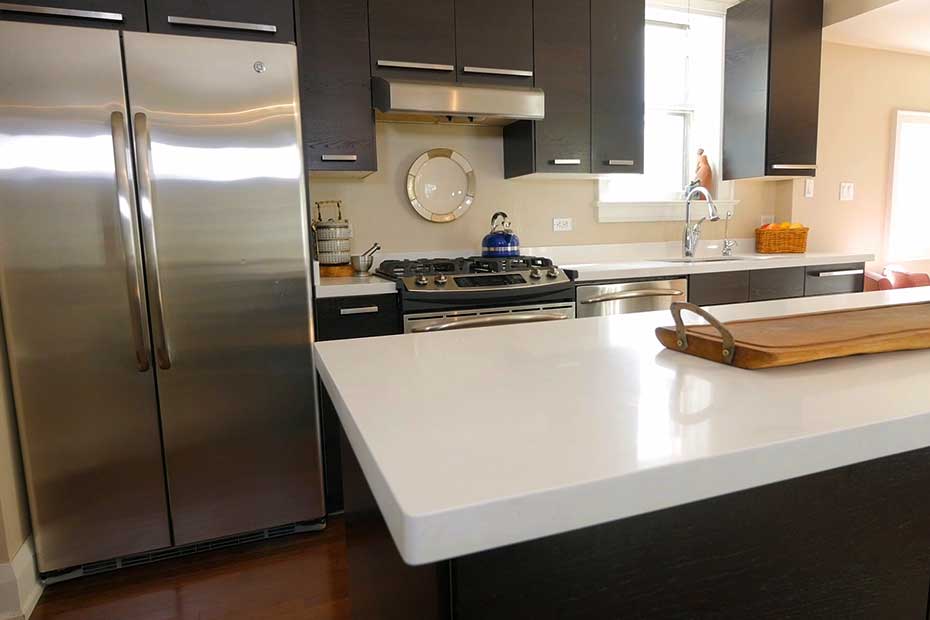You’ve been dreaming of a new kitchen or bathroom for years, or maybe it’s finally time to redecorate the family room, which is looking pretty tired. Dutifully pinning photos online, attending home shows, gathering samples, visiting open houses and trying to save money so you’ll have a decent budget.
What now?
You ask friends to recommend an interior design professional, kitchen planner, contractor, architect or builder. Several happily give you a name and some feedback about their own experience. Other friends won’t give you a referral because they didn’t have such a good experience. What happened, you ask?
The disenchanted have plenty of good reasons for being unhappy. They share a litany of complaints that range from mild incompetence, to gross negligence and even fraud. Every story gives you something else to worry about. Gulp. This isn’t going to be quite as easy as you thought.
You begin to wonder: “Is it even possible to have an enjoyable experience decorating or renovating?”
Luckily the answer is yes, and it’s not a matter of luck. Knowing which questions to ask is a good start in setting your project up for success.
Here are a list of questions to help you avoid the most common decorating and renovating pitfalls, money-wasters and design rogues. Each of these issues should be plainly addressed in a professional contract.
What to ask up front:
How Much Will This Cost?
The first thing you’ll want to know is likely, “What will this cost?” While it’s not possible for any professional to give you an accurate budget within the first couple of hours of meeting you and touring the property, you want to know how fees are arrived at. Are there hourly fees or is it a flat fee contract? Is there a limit on fees? Are there ways that you can contribute to lower fees? For example, if you are capable of making swift decisions it’s likely your fees will be lower than someone who agonizes over each decision or frequently changes her mind.
What Types of Markup Exist?
It’s common practice in the world of renovating and decorating to receive trade discounts. The discounts belong exclusively to the professional, who earns them through repeat and volume business. Some will offer clients a portion of those savings. For instance, in my office, we share any savings 50%/50% with our clients. This policy allows us to be transparent in all billing and the savings produce deep savings for our clients. Not all professionals share those discounts and that’s fine. Some have fees that are so low, they count on that money to pay overhead and expenses. As the customer you just want to know what the professional’s policy is.
How Does the Project Manager (Contractor or Designer) Deal With Mistakes and Deficiencies?
Beware the professional who tells you there won’t be mistakes and deficiencies. I’ve been in business since 1991 and I’ve only worked on one project where there were none. It was a small bedroom makeover. Mistakes and deficiencies are part of any project. How the professional handles them speaks volumes about their integrity and character.
Who Is Ultimately Responsible for the Project’s Success?
If you are working with a team—a builder, contractor, architect and designer, it’s advantageous to you if one of those professionals takes the lead and is the ultimate guarantor. Otherwise, every problem or issue that arises will be someone else’s fault and you’ll find yourself doing the project management.
Is the Contractor or Builder Using a Designer?
If not, are you really comfortable allowing that person (whose skill set is vital to the project) to also create the vision for the project? Your project will benefit from using the right person to do the right job.
How Is Budget for Goods Determined?
Are specific items being priced or is the contract full of “allowances”. A budget that is developed but contains some or many categories that rely on “allowances” will nearly always be too small to complete the project. For instance if the budget provides an allowance for appliances is that allowance large enough for the fridge and range that you’ve dreamed of? If not, you will be adding money to the budget. Now imagine allowances in 5-10-15 different categories. Insist on a budget that is based on the level of detail and quality you are expecting.
When Does the Project Begin and End?
Ensure that you and the professional have agreed on the timelines. Are there penalties for delays? What behaviours on your part (the client) will contribute to delays. For instance, do you have a holiday pending that will mean no one can enter your home? Or, do you have a habit of changing your mind frequently?
How Many Repeat Customers Does the Professional Have?
This is my favourite question. It tells you a lot about the company you are thinking of hiring. A poor answer here and you should find another professional to work with. This is the perfect time to ask for 5 referrals as well. Make sure you look online for testimonials to support what the referrals say.
Do You Provide Proof of Credentials?
Proper licensing, insurance and WSIB (workman’s compensation) are required by law (although rules vary by province). As well, you will need electrical safety authority licensing for all electricians. Even if you hire a builder or contractor you should insist on seeing copies of these credentials. Your insurance may be jeopardized if these critical items aren’t in order.
Who Is Responsible for Permits?
Never work with any professional who suggests skipping the permit process. As a general rule if there is plumbing or electrical work involved permits are required. Make sure you hire a Licensed Electrical Contractor for any and all electrical work. Check your local laws as they may differ from province to province.
Finally remember, a contract is only as good as the paper it’s written on. Don’t settle for verbal confirmation that your needs and concerns will be met. Hint: a professional without a contract is not a professional.
More from the Kimberley Seldon Series:
This article is intended as general information only and is not to be relied upon as constituting legal, financial or other professional advice. A professional advisor should be consulted regarding your specific situation. Information presented is believed to be factual and up-to-date but we do not guarantee its accuracy and it should not be regarded as a complete analysis of the subjects discussed. All expressions of opinion reflect the judgment of the authors as of the date of publication and are subject to change. No endorsement of any third parties or their advice, opinions, information, products or services is expressly given or implied by Royal Bank of Canada or any of its affiliates.




























